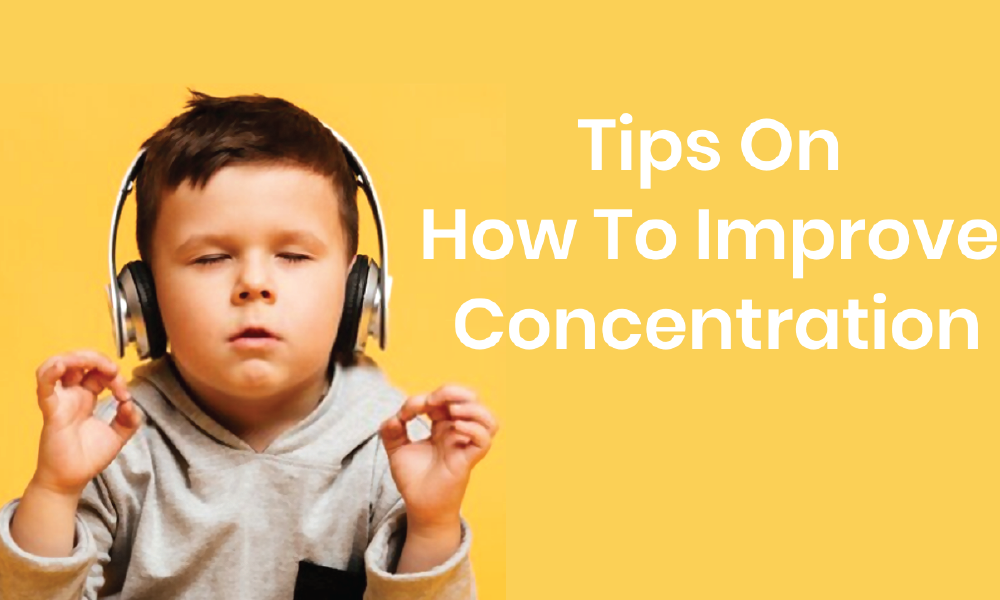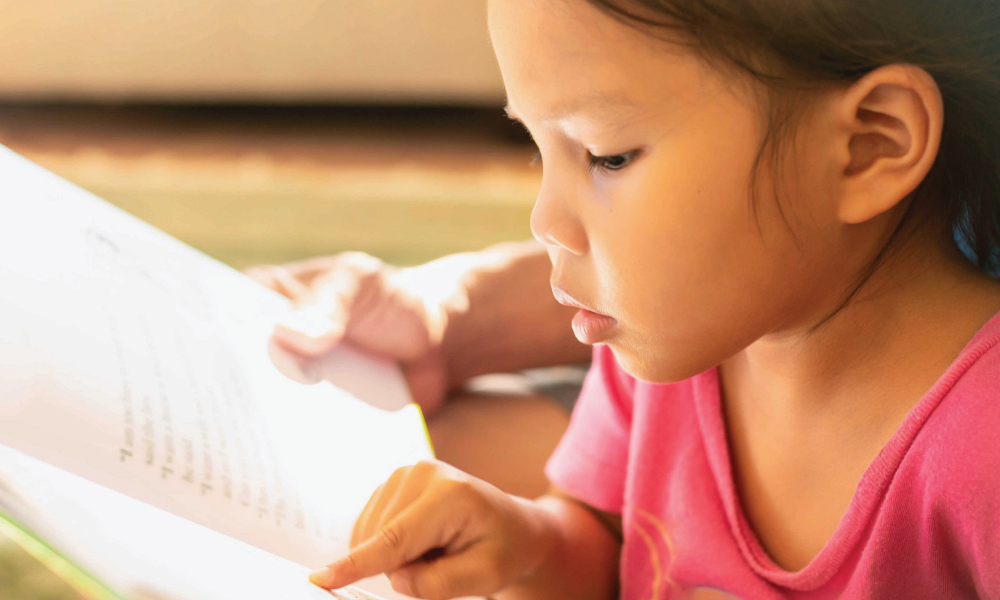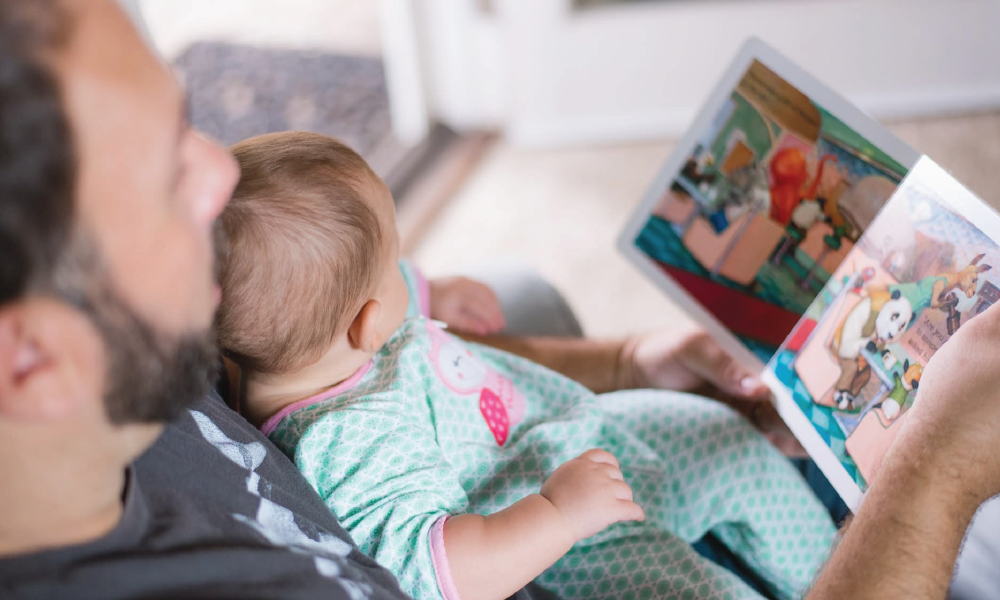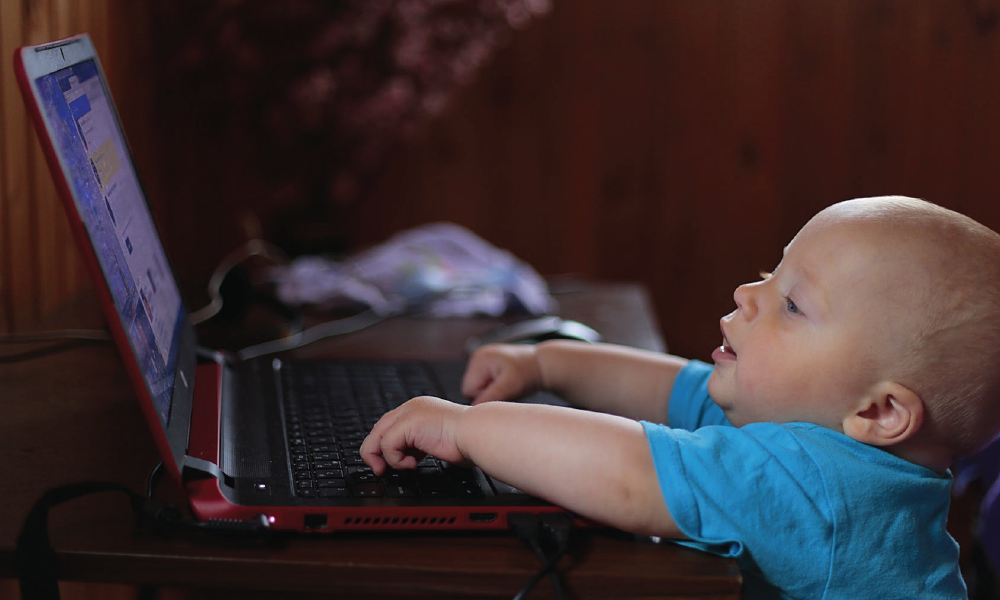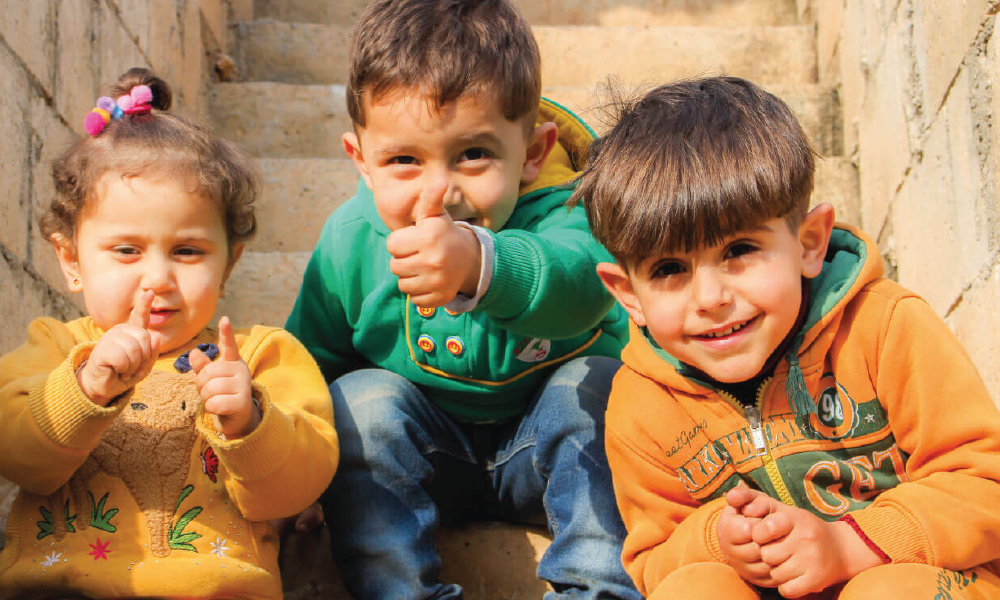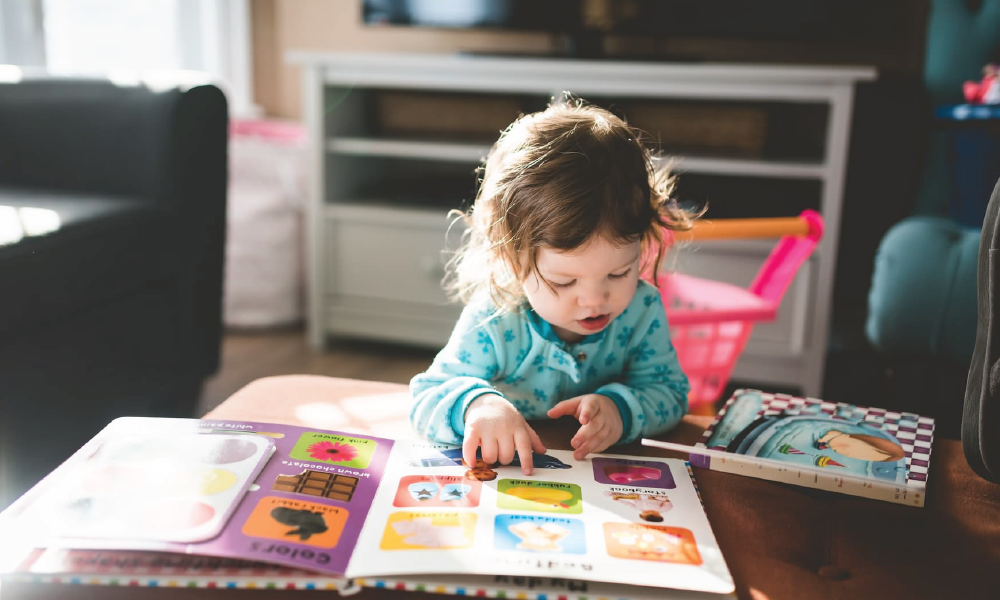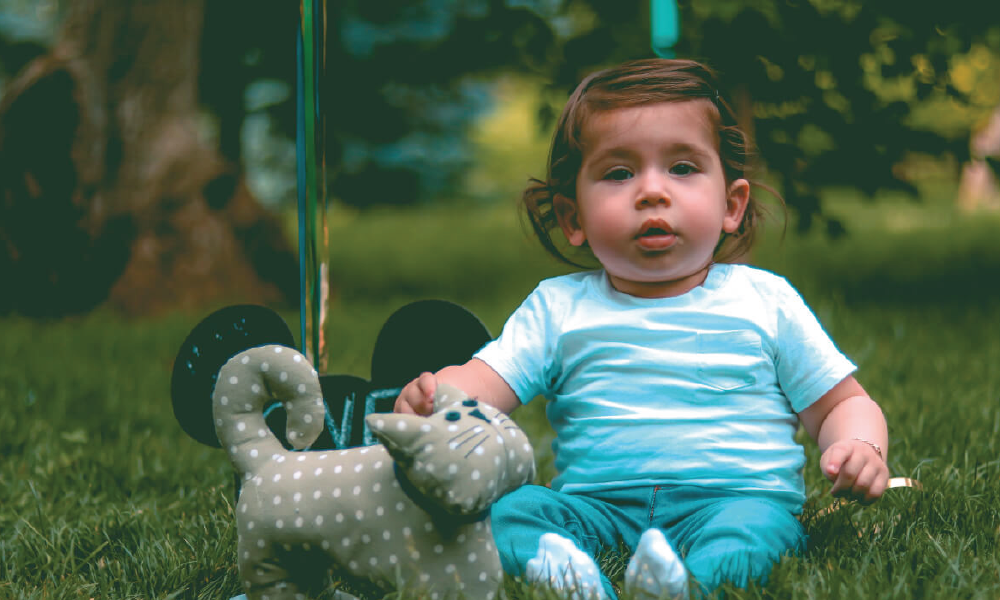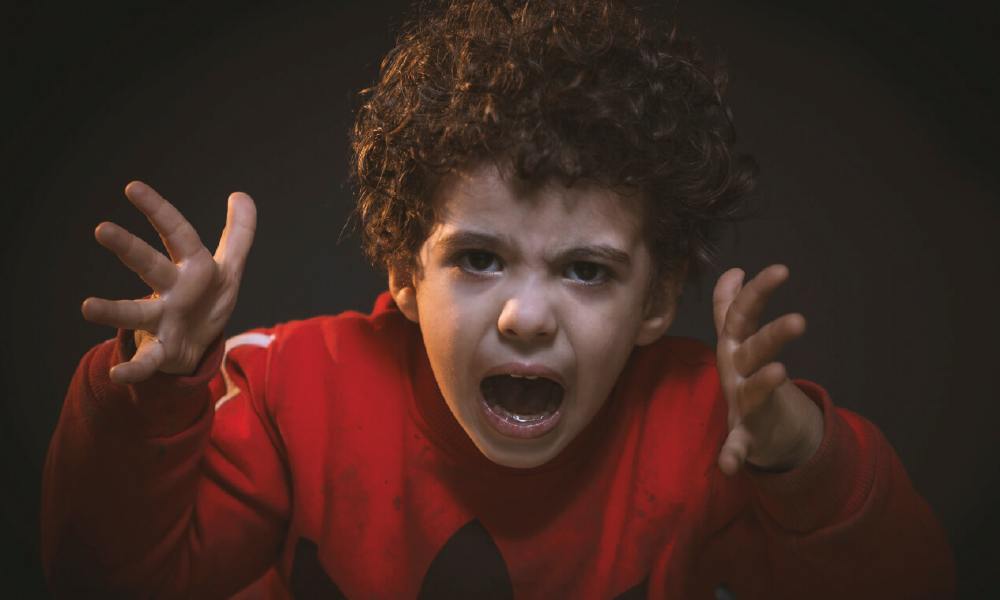10 Tips On How To Improve Concentration & Focus In Kids Is concentrating on one thing has become a challenge for your little one too? Because like grown-ups, even children face problems related to focusing or high attention span which is likely very common these days. It is even harder for children with a reduced attention span. But surprisingly, everyone has encountered this at some point in time. And this is not something to worry about, instead, efforts must be put into enhancing the cognitive abilities of your child’s mind. Concentration in kids refers to the mental effort directed towards a child’s activities. There may be several factors responsible for a low concentration level. And that may include lack of interest, poor nutrition & daydreaming predominantly among other such factors. While it may surely seem impossible to get your child’s homework done or make them learn something new, that’s only because they are distracted & energetic at once in this stage. It would be too much to expect laser beam-like focus from a child at this age. Really! But what’s reasonable is to make your little one practice concentration exercises & methods. The purpose of these exercises is to prosper a high attention span for a futuristic point of view. And we at Tickle Right, direct your child toward a healthy learning lifestyle & minimize the scope of distraction by making things interesting enough for your child. Why Is Concentration Important In Learning? The power of concentration has so much to offer to your child. This helps develop coordination & promotes a disciplinary approach for your child’s welfare. However, attention span varies from child to child & one needs to apply different methods to tackle this problem. That means it’s important to recognize the root cause first & go into depth lately. The following are the most common signs of poor concentration in children today – Daydreaming Poor Nutrition Poor Motor Skills Lack Of Interest Restlessness Distorted Sleep Patterns The ability to concentrate enables a better understanding of the surrounding environment & beyond. It’s suggested that children with high & medium attention spans perform well than those with poor concentration hold. Not only does it help your child academically but does a job as a memory booster to comprehend things better. In short, your child can achieve better results with an ability to stay focused. And that’s only because there’s a lesser chance for your child to miss out on important information this way. 10 Proven Tips To Improve Concentration & Focus In Kids Lack of concentration makes it harder to focus in the right direction & may even turn into a long-term challenge for your child. It can also make learning difficult for your toddler. However, you must not worry because there are ways to deal with this correctly. Several psychological & health factors trouble a child’s will to concentrate & improve their focus level. These includes: ADHD (Attention-deficit / Hyperactivity Disorder) Developmental Lag Anxiety Depression Brain Injuries Concussion It’s always a good idea to come up with solutions instead of only focusing on the problems duly. At the same time, solutions are of no use unless & until you discover the root cause of the problem & come up with the right strategies to tackle the issue. Consequently, here are the proven tips to improve your child’s concentration level skillfully. Segregate Large Tasks Into Smaller Ones Your child is at a crucial developmental stage that also demands the completion of several academic & non-academic tasks. These tasks may seem like a lot for a child who has concentration difficulties. And your child may avoid coming around big tasks because it also requires better focus & discipline. However, when you divide a big task into smaller manageable bits, it automatically becomes easy for your toddler to operate better. Effective segregation of the tasks makes focusing easier & renders a sense of satisfaction after its completion. This also motivates your child to do even better & simultaneously builds their attention span as well. For instance, you can ask your child to read a few paragraphs instead of the whole chapter. Your child will be keener to read it. Reduce Distractions Around It’s quite normal for your child to be energetic, bubbly & curious at this stage. And as parents, it’s your responsibility to reduce distractions around them for more focused learning. Therefore, some common means of distraction can be TV, electronic gadgets, loud music, & others around your child. Most children tend to perform better in a distraction-free environment because it allows them to think better without any hustle. The ambiance around your little one must be soothing. You can also play some light music to cheer them up. Secondly, make sure to limit your child’s screen time to only studying. In addition to this, familiarize your child with the perks & aura of the natural environment. Take them out on walks. These steps help a child develop a refreshed mind in no time & thereby improving their focus skills. Focus Games & Exercises What excites your little one the most? Think… So, it’s time that you increase your child’s attention span by the means of what they love to do most. Games! Introduce your child to puzzles, sudoku, crosswords, card games, number hunt, & activities like coloring & storytelling to boost their concentration level & critical skills. Amongst other techniques, sequencing is a proven way that can help build up an improved focus. Activities like putting things in order, setting the dining table, and alphabetical or numerical order improve bilateral coordination. And some other movements that can challenge your child’s mind are asking your child to sit still for a while without fidgeting. Get them rolling with some interesting tongue twisters. You can even consider these tasks as a good workout regime via repeated play. Physical Activity Children are full of regular bursts of energy at any time of
The Importance Of Reading Once upon a time in a faraway land, little Snow White stumbled into a tiny cottage owned by dwarves. Having nothing to do, she pulled out a chair and flipped open a book. A great beam of light radiated from the pages. Its glow intensified and minutes later, Snow was sucked in. She had been teleported to another dimension. Clad in rubies and emeralds, she found herself dancing with the crown Prince at his birthday gala. When the clock struck 12, that very beam of light devoured her again. This time, she found herself running away from a wolf dressed in grandma’s clothes. She ran and ran until she arrived at a gingerbread house adorned with candies and treats. As she was about to enter, she was awoken by the echoes of 7 knocks. The dwarves were finally home. As you skimmed through the above passage, we’re certain that just like Snow White, you were transported to another world. That’s the power of reading. It feeds your imagination and enhances your creativity. Without possessing the ability to read, you wouldn’t have been able to comprehend these sentences. Letters would be gibberish and words would be meaningless rubbish. You wouldn’t be able to read driving signs or follow a recipe or even accept a wedding invite! Reading is a fundamental skill that must be inculcated from an early age. Getting a headstart allows your child to reap the infinite benefits of reading before others. Here are some of them : • Neurological Benefits Children learn at a faster pace during their formative years, especially during the first six years. Their brains absorb information like sponges when they’re young. Vital connections in the brain are made very early in life. At birth, a healthy baby is born with approximately 200 billion active brain cells or neurons. Given the right kind of stimulation, each neuron is capable of sprouting up to 20,000 different dendrites and synapses. When parents perform brain activities like talking, singing, and reading to their child, they’re providing the necessary stimulation to not only strengthen existing links between brain cells but also form new links. By cultivating a love for reading from an early age, you’re also instilling a lifelong love of learning and knowledge. • Educational Benefits Reading unlocks the door to your child’s academic success. Research suggests that early readers achieve higher grades in not only Literature but every subject. Children who read have greater general knowledge, a richer lexicon, and are better able to articulate their thoughts. Improved attention spans, better concentration, supreme oral skills, and fluency are additional benefits of reading. They also gain proficiency in their writing skills as they understand grammar and sentence structure. Advanced comprehension skills enable them to think critically. This makes them excellent researchers as well. Therefore, it’s no surprise that reading will give your child the necessary impetus to excel scholastically. • Psychological Benefits A loving environment is conducive to growth. A child who learns to read in such a joyful environment will grow in self-confidence and independence. Reading sparks curiosity about people, places, and things and it also quenches this thirst for knowledge by providing relevant explanations. Other benefits of reading include enhanced creativity and imagination. Reading also proves to be a phenomenal activity if one is looking to spend some quality time with their children. Early readers will also have an upper hand over their peers. As they’ve learned to read at a leisurely pace, they view reading as an exciting adventure and not a tiresome chore. In a crowded classroom, they won’t have to compete for the teacher’s personal attention. Undoubtedly, their self-esteem is bound to soar when their reading competence helps them progress faster. Such a child will also become a natural and self-confident leader. • Linguistic Benefits Reading results in improved linguistic skills in the form of an abundant vocabulary, correct grammar, improved writing, better spelling, and oral eloquence. Research emphasizes that children with a wider vocabulary fare better academically during their early years. Reading also contributes to effective communication skills. • Safety Early reading allows children to comprehend important warnings and labels such as ‘ poison ‘, ‘ danger’, ‘ beware’, ‘ stop ‘, etc. • Relaxation When you read, you relax your mind and focus on whatever it is that you are reading. Doing so slows down your brain and keeps you calm and tranquil. It is a form of escape that soothes you to the core. Reading is also a fulfilling and productive activity that makes you feel accomplished. • Discipline Reading requires concentration and focus. This teaches your child self-discipline. A longer attention span and better memory retention are additional benefits of reading. • Empathy While reading, your child will put himself in the character’s shoes. This teaches him empathy which allows him to relate to the character on an emotional level. You can do the following to inspire your child to read more : • Make books accessible Children who become readers often have books and other reading materials available at their homes. Thus, as a parent, you should ensure that there are plenty of books at home. Place the books in an easily accessible corner so that your little one can read as per his convenience. • Be a role model Children often emulate their parents’ behavior. When you pick a book up for some leisure reading, your little one will probably do the same. If your child notices your profound love of reading, he will be more inclined to develop the same adoration for books. • Visit the library frequently Along with extracurricular activities, you should also encourage reading. You can do so by visiting the library together. The opportunity to choose books of his choice will make your child more enthusiastic about reading. Such library visits can be your very own tradition that your child will fondly remember when he grows older. • Make reading fun When you read, make sure you
Parents’ Guide: How To Develop Critical Thinking Skills In Kids How to teach your child to be a critical & analytical thinker? Well, that’s a question that is being completely addressed in this blog. Kids are generally curious about a lot of things happening around them. And as parents, it’s your responsibility to address this curiosity & instill habits that will sharpen & strengthen your kid’s mind. Critical thinking skills are an amalgamation of awareness, understanding, analysis, & reaction. Which makes it more critical to understand these stages & help your kid accordingly. The right answer to every “Why” & “What” question popping up in their heads is an opportunity for you to get their minds rolling. It’s also important to build up a need that makes your little one question & automatically react to their surroundings & present emotions. In fact, allow them to think through & express their observations. You can also analyze & correct them, if necessary. The purpose of doing this is to let them separate the information they have gathered & answer relevantly. We at Tickle Right, fulfill the requirements of a child’s critical mind. We prepare your little one to leave their nest & make critical observations part of their lives. This will not only help your child be academically sound but also be a great thinker. Critical thinking for kids is a way to help them contemplate the environment & develop skills like – leadership, confidence, empathy, communication, & problem solving duly. And that;’s why it’s important to build such a skill set. What Is Critical Thinking In Kids? Critical Thinking skills determine the potential to be aware, thoughtful & be able to evaluate the information from the surroundings to develop a problem-solving approach. These skills help a child develop a critical approach towards, analyzing problems finding solutions, & building opinions duly. When your child evolves as a critical thinker from this age, that’s a life skill your child invests into by developing reasoning skills for the future. Critical thinking is also associated with creativity & making smart decisions accordingly. The glitters of creativity may accompany your little one during childhood to a lifetime. However, the main objective of developing such skills in a child is to empower the little one to be active & careful while tackling obstacles & challenges. This approach is also necessary for a better tomorrow. In the real world, it’s not always a direct correct or incorrect answer, but you have to think through it. When a kid uses the cognitive skills to conclude, this leads to affective empathy, persuasion, & productivity in a task. In short, your child’s critical approach & enhanced creativity will prove to be an asset in the future. Importance Of Developing Critical Thinking Skills In Kids Critical thinking in kids is important for various reasons. A child’s brain & cognitive development is not only aimed to determine success academically, instead of from a wholesome perspective. That means, we believe critical thinking has a wide scope of opportunities lined up for your kid in the future. Not only in terms of academics or problem-solving approach but by developing empathy & building happy relationships in the future. Amongst other things, read ahead to the importance of critical thinking in kids – Generates Curiosity Reasonable Approach Healthy Critical Mindset Building Future Relations Countering Peer Pressure Problem-Solving Outlook Handling Challenges Duly Self-Assessment Enhanced Creativity Developed Confidence Critical thinking skills develop a mindset that is helpful in handling pressure, obstacles, & understanding the surrounding environment. Sometimes the best way to teach critical thinking to your kid is by the means of activities, games, open-ended questions, storytelling, & others. Read ahead to find out. Is Critical Thinking Hard To Teach? The simple answer is ‘No’. What matters here is the right strategy, methods, and a deep understanding of the concept to convey the information in the right manner. The correct way to do so is by asking the right questions & encouraging unique solutions. However, we at Tickle Right, shape your child to be a problem solver & be able to make rational choices most importantly. This also means going beyond and feeding them the right solutions to interpret on their own for future understandings. How To Develop Critical Thinking Skills In Children? There are several ways of developing critical thinking skills in your child. For example, putting up open-ended questions to your child like “What now? What do you think?” while appreciating their previous efforts will help you to build a conversation. While on the one side, you can also opt for right-brain training activities that are aimed to focus on skill-building & long-term memory. Whereas, the below-mentioned tips & ideas will help your child start today to become better thinkers & problem solvers. Encourage Them To Ask Questions Young children often tend to ask a lot of ‘What’ & ‘Why’ questions. So, when your kid is allowed to express curiosity & an opinion for or against it, it helps them feel about a proposition in a certain way. This also develops critical thinking. In a way, if you back your child’s discourse by logic & correct reasoning, it will help your child grow immensely. Even the most illogical questions must be answered & explained from an early age with suitable examples. You can also counter-question them to form a reaction. Be Patient & Avoid Intervening Being patient is the first step to developing reasoning skills in your kid. Even if you want to, don’t directly jump to conclusions. Move slowly & allow your child to think for a while. You can always short questions & give them enough time to compartmentalize the information in their head. This will also result in systematic delivery of response as your child will have enough time to answer & run their assumptions by you. Develop Hypothesis With Them While engaging in some daily extracurricular activities, you can form suitable hypotheses during the play. Simply
Importance Of Early Childhood Education ” Why does my baby have a fever? ” ” How many oranges can kids eat in one day? ” ” Best extracurriculars for children. ” ” Hair lice remedies. ” ” Parenting tips for dummies. ” This is probably what every parent’s search history would reveal. No matter how old your child is, you, as a parent, will worry about one thing or the other. Thus, you have equipped yourself with the knowledge to deal with every potential problem. Right from health to education, you want to be prepared for it all. In this process, one mustn’t sideline the importance of early childhood education. While browsing for the best preschools for your little one, you should know why doing so is crucial. Early childhood education refers to the period from birth up to the age of 8 years. It is more than preparation for primary school. It aims at the holistic development of a child’s social, emotional, cognitive and physical needs in order to build a sound foundation for lifelong learning and well-being. Well-established research constantly emphasizes the importance of early childhood education as an essential building block for a child’s future success. During your fledgling’s younger years, his remarkable brain is capable of absorbing information like a sponge. At this stage, his potential for learning things is at its peak. Attending an early childhood education programme will not only improve your child’s language and motor skills but also develop the necessary cognitive skills to advance to primary school. At this juncture, enrolling your little one in a right brain education programme would be an excellent choice. Right brain development activities have innumerable benefits. When the right hemisphere of the brain is unlocked, your child is introduced to a plethora of learning opportunities. Attending a quality early childhood education programme is known to improve your child’s health as well. The quality care provided in these programmes influences his learning and development. Additionally, his socio-emotional development is less likely to be adversely affected. In fact, his social skills would flourish in such an environment. The benefits of early childhood education include : • Socialization : Socialization with individuals apart from the child’s family in a safe environment is of vital importance. Parents must support their children’s transition into their friendship groups. The earlier you accomplish this, the better. Why? This helps your little one overcome shyness and gain confidence. • Co-operation : At an early childhood education programme, children learn how to share, co-operate, and remain patient. In this process, they’re guided by thoughtful professionals who have their best interests at heart. This is especially important for an only child who is unaccustomed to sharing at home. This is a crucial lesson that must be taught at the earliest. • Effective Learning : Lessons must be taught in a fun, interactive, and exciting manner to spark a thirst for lifelong learning. Your child will thus, be equipped to embrace life’s challenges with enthusiasm, eagerness, and determination. • Teamwork : Several preschool activities revolve around teamwork to teach your toddler the importance of respecting other opinions, listening and co-operating. Instilling this value at a tender age ultimately makes your child socially attuned and more employable. • Resilience : By establishing a consistent, secure, and just social environment, teachers can foster resilience in children. Clearly defined expectations and predictable consequences help children manage their emotions optimally. This builds the foundation for their coping strategies to deal with life’s challenges in the future. • Patience : As adults, we encounter situations that test our patience on a daily basis. An early childhood education programme provides an abundance of social experiences where your child can explore and practice patience. At this tender age, the important virtue of patience is imparted. E.g. – your child learns to share the teacher’s attention, waits in line for his turn at the swing, etc. • Confidence and self-esteem : Positive interactions with teachers and other children in the classroom will promote a secure and healthy image of your child in his mind. This enables him to embrace life’s problems and obstacles confidently. An after school programme that focuses on right brain development activities will teach your child the above life skills and values while tapping the unadulterated potential of the right brain. In a left-brain dominant world, a right-brain child will undoubtedly thrive as he’ll have an upper hand due to his holistic brain development. He’ll be capable of logically assessing a situation and coming up with creative solutions. Right brain training consists of activities that can be conducted at home. For example – using flashcards, pretend play, music, dramatic story-telling, mandala, imaging, etc. Along with lighting up the right hemisphere of the brain, these activities necessitate parental involvement. This strengthens the parent-child bond. By taking an active role in the early childhood education process, parents can help ensure that their child has all the support they need to develop to their full potential. Parental involvement creates a positive experience for children and helps them excel academically. Such involvement extends teaching outside the classroom. An active and engaged parent will also know where his little one is competent and where he requires more attention. Therefore, the parent can focus his attention on those areas. This will ultimately improve the child’s confidence in his abilities. Time and again, the significance of parental involvement in a child’s early years has been emphasized. What better way exists to engage as a parent than by involving yourself in right brain development activities with your toddler? The activities at home, in addition to the after school programme, will bless your child with an arsenal of lifelong values and skills. However, the only weapon your child will need to overcome life’s hurdles is your constant love and encouragement.
Internet Safety: How To Keep Your Child Safe Online Does internet safety for kids require band-aids, anti-septic solutions, allergy meds, helmets, and knee pads? A BIG NO. As most children are likely to spend a lot of their time online on the internet. We’re sure they love playing games & watching fun videos that make their day enjoyable. However, as parents, it’s our responsibility to make sure that your little one is safe up there. Protecting them from internet safety risks & guiding them to adopt a sincere online behavior is a must. Innocent online searches can lead to negative results at times. Educating your child prior to such actions will inform them what’s correct & what’s incorrect. We at Tickle Right aim to foster a holistic brain development approach in children. This helps them guide themselves in making important decisions in life. Online Safety Tools For Children As a parent, your child’s safety is always your #1 priority. The first aid kit is stocked to the brim at all times. However, are you equipped to protect your child from the terrors that lurk behind a screen? A survey done by Uninor in schools across seven states in India indicates that 30 percent of Indian children accessing the Internet have experienced some kind of cyber harm. This includes cyberbullying, cyberstalking, hacking, and defamation. The younger your child, the more susceptible he is to the dangers of the Internet. A cyber predator could be right around the corner and you would have no idea if you haven’t paid attention to your child’s online activities. Most Common Dangers Children Face Online The following are the most common dangers children face online in the modern-day technology-driven era: 1. Cyberbullying Social media and online games are today’s virtual playground, and that is where most cyberbullying takes place. E.g. – receiving/posting hurtful comments on social media posts. While you do your best to protect your child from cyberbullying, you must ensure your child doesn’t engage in the same. 2. Cyber Predators Sexual and other predators can stalk children online, exploit their innocence, abuse their trust, and in unfortunate cases, lure them into very dangerous personal encounters. 3. Posting Private Information Since children are at a very tender age, they do not fully grasp the concept of social boundaries. They can foolishly post personal details online, right from social security numbers to home addresses. They do not realize that even a seemingly harmless location tag can be heavily misused by online miscreants. 4. Phishing Phishing refers to the use of emails that try to trick people into clicking on malicious links or attachments. The cybercriminals who devise these emails observe sites that are popular with children and gather information such as email addresses and friends’ names to use in their scams. ( E.g. – It may offer your child a ‘ prize ‘ in exchange for your credit card details). Therefore, you must teach your children to be wary of emails from strangers from a young age. 5. Undesirable Posts While children are at risk of being exposed to gruesome content ( both violent and sexual ) , they could also be haunted by their own posts. Anything you put on the Internet stays there forever. What they believe is amusing today could be embarrassing tomorrow. It’s better to be safe than sorry. These virtual hazards are just as powerful as real ones. Countless teens have been driven to suicide by cyberbullies. The surviving victims of these dangers must’ve experienced unimaginable physical, psychological, and financial trauma. Internet Safety Tips To Keep Your Child Safe Online The following tips will help your child adopt healthy behavior against internet safety risks. 1. Communicate Openly As soon as your child is old enough to access the Internet, talk to him about what type of content he’s consuming, who he’s talking to – and continue this conversation as he grows older. Healthy discourse is vital for keeping your kids safe online. At all times, let them know it’s okay to make mistakes and that you’ll be there for them no matter what. Your child must trust you for him to tell you about any unsavory online experiences. If your child is being bullied online, you might detect changes in his behavior in real life. Please pay heed to these signals before the damage becomes irreparable. It’s also critical to teach them about their online reputation and how they must be careful about how they behave, interact with people and represent themselves in such a public forum. They must always remember that the internet isn’t private. 2. Keep Screens & Devices Where You Can See Them The computer should preferably be placed in a central location in your home so you can keep an eye on your children when they use it. For mobile devices, you can set them to forget Wi-Fi passcodes. This way, you’ll know they’re going online when they ask you for the password. You may also enforce a ‘ no devices in the bedroom’ policy. For younger children, you might want to check their browser histories so you’re aware of the content they’re viewing. 3. Parental Controls Several browsers, applications, devices, and Internet Service Providers offer parental controls. For example, the SafeSearch Filters feature on Google will block sites with explicit sexual material. Although not 100 percent accurate, parental controls can help prevent your child from seeing and accessing the most violent or sexual material. While most parental controls are offered for free, paid security options are also available. 4. Know Your Children’s Online Friends Children and young people can be alarming naïve about who they are chatting with if they are not taught to be cyber-wise from an early age. Thus, you should monitor who your child is talking to. If it’s a school friend or a neighbor, it’s probably alright. If it’s a stranger who insists on meeting them? Red flag! 5. Privacy Encourage
6 Most important Social Skills For Kids At An Early Age The ability to contemplate feelings, manage responses, & express emotions fall duly under the umbrella of excellent social skills. These skills bestow power in a child’s behavior. In a way, it helps initiate conversations, read facial expressions, & strengthen their communication skills with the faces around them. And as your child’s first role model, it’s your duty call to expose your little one to a responsive environment where they can interact easily. Besides, there’s no doubt about how important social skills are for a child’s overall development. A child only develops their senses when they are exposed to surroundings where they can play, explore, learn, & even get irritated, bringing about all kinds of reactions. In general, it’s easy for some children to get along over time, but for some, it may still be difficult to speak to their peers. And you can help your child be more comfortable around unfamiliar people by following the tips mentioned ahead. We at Tickle Right assert the crucial importance of social skills in our Right Brain Training Program. There are also several other skills associated with the understanding of social skills. That includes developing empathy, profusing confidence, inculcating a habit of sharing, & setting boundaries while communicating with peers around. What Are Social Skills For Kids? Social skills for kids can be referred to as a set of skills crucial for daily interaction & understanding of expressions. It also involves strengthening a child’s language aptitude for enriched social-emotional development. While helping a child develop some fundamental social skills, the focus stays on both verbal & non-verbal communication. Your child will come through these skills with just effort, the right means, & practice. These skills have the potential to transform your child into a social butterfly. And if not that, surely some social & emotional independence as they grow up over time. The ability to express themselves well caters to every child’s social needs & personal requirements. It is the direct means of connecting with people, making new friends, handling conflicts, expressing your wishes, & others. In short, it helps your child to read social cues & respond well to them. Importance Of Social Skills For Kids Having a robust set of social skills can foster a wholesome personality for your little one. It is just not limited to social development, instead caters to other rich experiences to help your child connect with both like-minded & varying interests of peers. This further impacts a child’s success & emotional well-being in every way. And subconsciously a child is born with the brilliance to connect with people, you still have to help brush these skills over time. Here’s how social skills can assist your child: Develop linguistic proficiency – Basic language skills include listening, speaking, reading, & writing. These skills help a child communicate with the world by improving their speech & the ability to connect & understand other people’s emotions. Self-confidence – It’s crucial that your child feels positive & good about themselves. At this age, you must expose your child to all sorts of fun experiences & encourage them to try out new things. This way they get to interact with a bunch of positive people which helps them build confidence. Improves learning power – Sound social skills also nurture a child’s best interests & talents. Which makes it almost impossible to avoid communicating & learning something new simultaneously. This also impacts how your child will grow in a learning environment & connect with their classmates as a preschooler. Inculcates problem-solving – Strong communication skills & a better understanding of any situation help resolve conflicts with peers. Such situations usually involve brainstorming & analyzing what’s best for everyone helps develop empathy & decision-making skills. Positive Mindset – A positive mindset lays the foundation for healthy early relationships. This is a mental & emotional attitude that helps concentrate on the good side of the situation. Therefore, with a positive mindset, your child will be able to develop great social skills & approach situations with confidence. How To Improve Your Child’s Social Skills? Your child is often surrounded by familiar & strange faces all the time. However, they begin to interact with their facial expressions, smiles, fussiness, & crying at a young age. As parents, you can leverage this opportunity to teach your kids to understand social cues, common languages, & listening skills over time. It’s essential that your child grows & develops communication proficiency with the right methods. Therefore, here’s how you can improve your child’s social skills who are struggling to interact with peers around them: Be Your Child’s Role Model Always be present during your child’s developmental years. It’s a normal tendency of many children to imitate their parent’s actions & words. That means your child is watching your behavior all the time. And that’s why it becomes important to think about how you interact with others around you. Encourage your child to interact with you & build on conversations that involve expressing any kind of emotion. Speak Your Common Langauge Speaking your common language around your little one helps develop a solid foundation of linguistic proficiency. Your child is a born linguistic master! And you must not forget it. This is another way how you can introduce your local language to your child. Children learn to pick up a few words by they are 9 months old. And you can go the extra mile by engaging in the same language that you want them to start speaking. Foster A Positive Environment An optimistic environment around your child helps develop a positive attitude & overall social skills proficiency. It gets easier for your child to make friends in the classroom & elsewhere by building upon skills like teamwork, sharing & emotional competency. Owing to such skills, the environment around your little one should be such that helps them express themselves without any hesitation. But this must also
Right Brain Training For Kids Right Brain Training for kids is an early learning method to impart knowledge to them in the most creative way possible. It is not only limited to strengthening your little one’s right hemisphere – instead, it is to empower both the hemispheres of their brain. Their left brain is generally characterized by logical & analytical elements, whereas the right brain determines their personality & brings out a creative side. Besides, we at Tickle Right, are here to create the most excellent synergy amongst these elements that will boost both sides of your toddler’s brain. The Indian educational model is usually more focused on the academic ethos that is based on more memorization & less retainment. As a result, this dims the spotlight on concentration, coordination, & long-term memory. Owing to such hazy results, this makes it more than important for you to introduce a healthy learning pattern to your child from a very young age. The bravery is not in the fact that your child has mugged up a set of alphabets, numbers, or shapes. After all, what’s it about is making them familiar with the right learning method that can bring the best out of them. With an objective to highlight your kid’s untapped potential, we present to you the right brain education program. It is powered to instill confidence, empathy & quick learning in your little one. What Is Right Brain Training For Kids? Right Brain Training is a learning method that is specially designed for kids under 1.5 – 7 years of age. It is aimed at developing a love for learning that also strengthens the right-side functions of the brain. The main objective of such a training methodology is to provide exposure & allow the child to engage willingly. There is a vast scope of topics that are covered duly, however, in an interesting & energized manner. As per the research, the right hemisphere of the brain develops faster for a child up to 7 years of age, more dominantly by 3 years. Therefore, it becomes more than essential to take leverage of the period by broadening their scope of knowledge & wisdom. Your child’s little mind has a lot of undiscovered potentials. And as parents, it is your responsibility to unleash opportunities for skill-building, profused confidence & more. The right brain training is consciously about visual learning, emotional intelligence, & rich creativity. So read ahead, to discover the right teaching methods for your sweet little child & find out the right means to do it. Right Brain VS Left Brain Functions Of A Toddler Before getting ahead with the Right Brain VS Left Rain synopsis, you must clearly know about the right brain & left brain functions of a brain for a better understanding of your child’s mind. Right-Brain Functions Photographic Memory Being Intuitive/Agile Rich Creativity Emotional Intelligence Reading Emotions Left-Brain Functions Analytical Logical Greater Concentration Numerical Language Oriented The two hemispheres of the brain are connected together by a pile of nerve fibers, creating a transmission of information from either side. They work differently, but they complement each other by working together. Both the logical & creative functions have their roles to play while learning or trying something new. And, we at Tickle Right create the most elite combination of training activities that develops both analytical & creative edge for your child. What’s The Best Time To Begin A Child’s Right Brain Training? The best time for your child to have right brain training is anywhere under 7 years of age. That’s because this is the most crucial time for healthy brain development. A child’s right brain education should be begun as early as possible to experience its benefits at the foundation stage itself. With the most interactive sessions full of interesting activities & experiments, your child would want to join the session willingly. 5 Ways To Train Your Child’s Right Brain At Home Your child’s brain is at a developmental stage & can be groomed based on greater memory retention and an intuitive subconscious mind. Whereas, right brain training is also aimed at empowering the visual abilities of a young mind. By doing so, we directly focus on a child’s potential to retain information, understand empathy & develop long-term memory. Given below are the 5 most interesting ways to train your child for right brain development – 1. Flashcards Flashcards are an excellent tool for thoroughly detailed learning. They create a visual impact & help your baby concentrate better. Please remember that these cards are not to be presented repeatedly ( not more than 3 times ) as they can create a sense of boredom. Instead, keep changing the information & images to keep your child interested. A great example would be if you want your child to learn about time, you can create flashcards related to day & night, a digital clock, different seasons – summer, winter, spring, & others. 2. Playing Music Music interests all children. It is a form of self-expression plus a way to help your child understand different emotions/expressions. It encourages their mind & body to relax & focus on the meaning of the song. Exposing children to music can change their life as it improves coordination, concentration, & develops patience & interest for later years. You can play interesting videos for your little one that also helps them memorize & retain better. Musical poems, stories, and games would be a great choice to help them understand some major concepts. 3. Mandala Art What better than mandala art to get your kid’s attention? The use of mandalas can develop healthy coordination between mind & body. It helps improve psychomotor skills along with writing/art skills. The usual formation generally includes different geometric shapes like circles, triangles, & others that help build an aesthetic sight & sense. Introducing your child to mandala art will work well for their own self-esteem & imagination. Another benefit of mandalas is
Holistic Brain Development Of A Child Every child is different. Their personality traits or extraordinary talents define their aura & uniqueness in the world. And it’s important that there is an alignment of your child’s interests, skills, strengths, & weaknesses with the kind of training they receive for beneficial personality development. If you’re only depending upon your child’s educational curriculum for results, this wouldn’t be your finest decision. However, we at Tickle Right would recommend the holistic development of a child’s mind for greater dynamics. Early childhood development lays the concrete foundation for an infinite potential to learn new things every day. And as parents, it’s almost impossible to not think about your child’s future growth. So, read ahead to know the vitality of holistic brain development. What Is Holistic Development Of A Child? The holistic brain development of a child constitutes the development & nurturing of skills to be able to encounter any day-to-day requirements & challenges. These include a child’s cognitive, linguistic, social, emotional, and physical growth for their overall development. Which makes it more crucial to recognize the demand for holistic development in the early years of a child’s life than in the later stages. Right after the birth of a child, a newborn’s brain & brain structures are quite similar. When a child hits their developmental years, especially the ‘sensitive periods’, it caters to the wiring of a brain for particular abilities & skillset. And here comes holistic brain development that assists in the wiring of the brain network via enriched & stimulative experiences. Importance Of Holistic Development In A Child Holistic development aims to nurture & expand a child’s full potential with the abilities that will help them lead a successful life. It establishes social adaptability alongside emotional intelligence to help them surpass their fears to interact & work as a team. Here’s why holistic brain development is important for a child’s complete growth: Instills compassion & confidence to meet daily challenges A bundle of prolific neural connections with physical, social, intellectual, & emotional development Builds social-emotional competence, linguistic proficiency, physical growth, & helps attain cognitive enlightenment Caters to the emotional & psychological well-being of a child to counter pressure & daily challenges Lays the foundation for academic brilliance & a resilient lifestyle that differs from conventional methods Factors That Help Shape An Holistic Brain Development There are several factors behind the influence of exceptional holistic development. As parents, you can look after your child’s learning path to success keeping into consideration the following factors: Education Physical & mental health Optimistic environment Social status Stimulating experiences Physical skills What Are The Components Of Holistic Development? Given below are the components of the holistic development of a child in the early years: Social Enlightenment A child’s social skills can be uplifted by helping them engage with other children. This helps foster early relationships & grants an ability to develop empathy towards others. Great social skills have several benefits like a chance at having better relationships, educational opportunities & profuse confidence to interact with people. This instills speed listening skills & an ability to cooperate, contribute, & participate with others. Emotional Intelligence Emotional intelligence counts for an ability to comprehend, manage, & regulate emotions. It is the ability to understand others’ feelings & be smart about the next response. At a young age, a child begins to express emotions without knowing their real meaning of it. You can put in efforts to develop such emotional intelligence. This is a clear opportunity for your toddler to build a high IQ as it is directly linked to emotional enlightenment. For that, you must show empathy towards your child & make them feel that you’re validating their emotions. Read stories that send out a message on problem-solving & coping skills. Share your experiences & give emotional support. Linguistic Competence Language skills are super important for kids to develop a step-by-step communication mechanism. It’s a part of upbringing naturally, as your child imitates your actions & is most familiar with the language you prefer at this stage. By the means of music, story-telling, reading, and responding to your child’s social cues, you can help them expand their language skills. Keep in mind that you need not pressurize your child into adapting language skills. Instead, get along & engage with your child by starting with small words first & full sentences later. Cognitive Enhancement By the time your child is 5 years old, their brain is already developed by 90%. Cognitive enhancement taps into the potential of a child’s developing mind by helping them explore & coming to a conclusion on their own. Besides, there’s no doubt about how young kids have the ability to quickly transmit information and imply critical thinking skills from a holistic perspective. As parents, you can provide a stimulating environment to your kid & encourage them to play & indulge in extracurricular activities. This also unleashes their potential for active participation and becomes a means of educating your child duly. Physical Strengthening Nurturing your child’s physical & motor skills is very crucial for their holistic brain development. With growing age, children are filled with regular bursts of energy that can be utilized to their advantage. Encouraging your child to move around & play, climb, hop, swim & swing helps build physical strength. For fine motor skills, you can clap with your child, play block games, complete puzzles, open-close containers, & make them hold small objects to teach pincer grasp. From kicking, and crawling to holding objectives, these skills help build muscles & spark sensory abilities. What Can You Do As A Parent? The means to strike a reasonable balance between providing exposure to play freely & address the physical, emotional, rational, intellectual, and spiritual aspects of a child duly is the key. As parents, you must continuously observe your child’s behavior for holistic brain development. The role of such development skills extends its domain to your
Right-brained dominant learners possess a tendency to defy ‘normal’ learning conventions. They have a different but unique path of learning. In actuality, they adore learning yet despise being taught. These children are exceedingly observant as their brains are naturally pattern-seeking. This behavioural attribute might contribute to your child’s silence. It is a foundational trait of your child’s personality which shouldn’t be worrisome. Conduct of right brain activities will assist in assuaging your child’s transition from a conducive, homey environment to a relatively threatening and provocative social atmosphere. These activities are a marvelous and amusing median for banjaxing communicative barriers. They will stir empathy in your children and enrich their proliferation. As your child repeatedly performs entertaining right brain activities, his social anxiety will wither and his emotional quotient will be heightened. His transition from an introvert to an extrovert will be implicitly impressive. He will look forward to monotonous activities like a visit to the museum if accompanied by friends. As your child constantly engages in interactive activities, his confidence and self-esteem will soar. He will metamorphose into an amicable individual with a passion for learning. Along with practicing genial activities for right brain development, an encouraging environment is quintessential and indispensable. Constant nurturing and support is absolutely vital in your child’s development. A marvelous method of bonding with your child would be assisting him in the right brain activities he performs. This will instill a curiosity to learn. He should be allowed to grasp concepts with the help of personal experience. It may seem that your child prefers being solitary but he might be immersed in his thoughts. Being a keen observer, he would rather acquire knowledge about his surroundings rather than adding to it. He would pick up cues from his observation and then behave accordingly. This also allows him to be astonishingly creative as he doesn’t engage in social activities often. Right brain activities are usually group activities. Through them, his potential will be tapped and his social skills will also flourish. Parents could click pictures with their children and preserve them. Pictorial scrapbooks are a great tool for stimulating the visual centers of the brain associated with good memories. Performing these activities will stimulate your child’s mental, physical and emotional growth and will ultimately transform him into an affable tot who will be admired by all. One mustn’t overlook the fact that a child’s silence might also be due to greater medical disorders such as selective mutism, anxiety, and autism. A doctor should be consulted to gain insight regarding this. Other contributing factors include tragic experiences in the child’s past, demoralising and dispiriting criticism from parents, anxiety, and lack of self-esteem. One mustn’t neglect the impact of an affectionate and healthy atmosphere on a child’s development.
Anger Management: 7 Exercises To Control Your Child’s Anger Too much anger or aggression in kids is a result of mismanaged feelings. Aren’t they? Feeling out of control or impulse reactions from young children is a common sign of anger manifestation. These signs reflect multitudinous repercussions over time. As parents, you must know the techniques for relaxing your child in such situations. Because an eye for an eye would not tame your child’s aggression. Reciprocating the anger at your child constantly usually backfires in a form of rough emotions. It can also make your little one more resentful. However, when a child is born, their mind is right dominant. Which makes it essential for you to be loving & patient with your child. Don’t let your child lose their right brain dominance by only being strict & disciplined. Your little one needs a loving environment to learn things & sway their anger in seconds. You can tap into your child’s potential with the benefits of right-brain training. This gives a boost to a child’s mind to develop creativity & empathy. When they’ll be in a position to understand others’ feelings, it will help them control their anger. You must make them learn the difference between healthy & unhealthy anger. We at Tickle Right recommend cutting out on negative feelings & channelizing their energy positively. Anger Management For Kids Getting angry in certain circumstances is completely normal even for kids. After all, they are behavioral reactions. However, there is an underlying difference between normal emotions & aggressive behavior. Your child’s conduct can also take the form of temper tantrums & continued frustration as a behavioral pattern. The purpose of anger management for kids is to psychologically control their feelings & the arousal that follows them. It’s suggested that babies manifest excellent results because of their right brain dominance. You can treat anger management in children by making the best of their potential. Your child must not be deprived of their right brain abilities in a world of left-brain dominance. Harsh discipline of strict actions will stimulate your child’s left brain. Whereas, the right way is to involve your child in activities & exercises that will trigger rich creativity in them. 7 Exercises To Control Your Child’s Anger A child’s anger or tantrums has to tame by staying calm & avoiding triggers for them. As their emotions may result in a form of lashing, the rise of negative reactions is not uncommon here. Your child may scream, cry, bite, or throw objects by creating a stressful situation for themselves. It becomes very important to manage their emotions right away because your child is unable to handle the frustration. Help your child get over this overwhelming situation by adopting a problem-solving approach listed below: 1. Develop A Vocabulary Of Emotions Your child must be familiar with their emotions. They must be in a position to let you know what they are feeling & develop an alternative approach to tackle anger. When your little one learns the essence of different words like angry, upset, furious, irritated, & enraged. It helps them convey their anger beforehand & differently. This can also be a substitute for hitting, crying, kicking, or throwing objects to express anger. It’s important to have a conversation with your child & assert optimism in such situations. 2. Teach Healthy Expression Who doesn’t get angry? Merely everyone. It’s important to protect your child from any adult problems if any. A healthy way to handle angry feelings would be to take your child to another room or an isolated area, away from the cause at the moment. Because kds must know the right way to express their frustration or anger. You can offer comforting objects like a coloring book, crayons, pens, or a music player to calm them. Your child can also take time out of the situation. As parents, you can use an alternative set of words to calm them. Instead of asserting, “Why are you throwing objects?”, you can say, “Walk into another room when you get angry.” 3. Involvement In Extracurricular Activities Extracurricular activities are always a blissful experience for kids. Aren’t they? Extracurricular activities for kids at any age help channel their bursts of energy into enriched creativity. Not only this but it also focuses on skill-building & stimulates excellence. Activities like art, music, drama, sports, and dance enhance social skills & disciplinary approach. You can ask your child to indulge in these activities when they are angry. This will give them a sense of relaxation. Also an opportunity to put down their anger & lighten their mood. 4. Practice Breathing Exercises Breathing exercises for kids are very helpful when they are furious or angry. When your child is going through such emotional reactions, insist on counting to five. Ask them to take a pause & repeat it again for quick results. Whenever your child does this, their body goes into a rest & relaxation mode. It helps fetch more oxygen into the bloodstream & creates a physical impact on the body. This is a way to eliminate stress & experience maximum relaxation. 5. Be Your Child’s Role Model Young children have the tendency to imitate their parent’s actions & words. You must set a good example of how you react when you are angry. Your reactions have a great impact on your child’s mind. So, you must think through it before you react. Always refrain from lashing out or throwing objects while angry. If you’re willing to instill positive coping skills in your child, you must demonstrate the exact behavior. This helps your child deal with anger the right way. 6. Display Comfort & Emotions It’s important to take some time out & show love & affection to your child. So, whenever your child is angry or furious, your physical presence adds a lot of meaning to calm your child. Lots of physical contact like cuddles, stroking, or a warm hug helps

